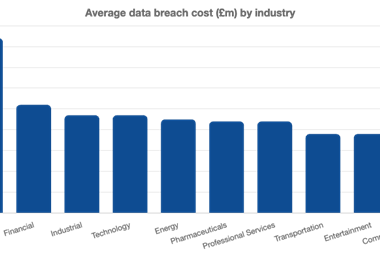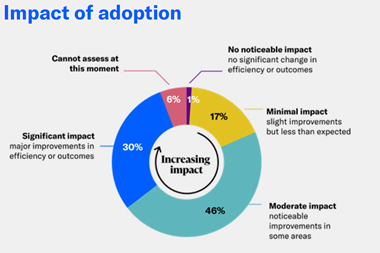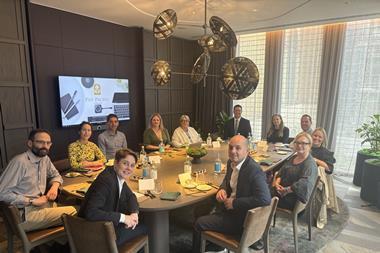In a world where technological innovation is seen as a magic bullet to boost business growth, the risk manager needs to keep things real. Maximilien Roche, founder and expert advisor at Rock Integrity & Investigations, explains how
Maximilien Roche, founder and expert advisor at Rock Integrity & Investigations, is speaking at the Risk-!n conference on May 30-31 in Switzerland.
Ahead of his session, StrategicRISK caught up with him to find out what hhe would be discussing and why risk managers should attend.

When it comes to the adoption of new and innovative technologies by organisations, what is the role of risk managers?
Risk managers are (generally) rational people: they work with models, questionnaires, ratings and rules. They must ensure that the organisation they work for is equipped to make informed, rational decisions, by adequately weighing risks and opportunities.
Their role can be quite challenging when it comes to helping organisations make decisions involving technological innovations.
In today’s world, technology is the closest thing we have to magic. Because it is complex and cannot be understood by everyone, it can derive into a form of cult, especially around charismatic innovators.
Particularly, the promises of technological innovation can create a form of risk-blindness or tunnel-vision, generated by a sort of magical thinking (also called by economists “irrational exuberance”).
There is a tendency to over-hype what technology can do: we’ve seen it repeatedly these past years with blockchain and the metaverse and we see it again today with artificial intelligence, this silver bullet that will solve all our problems.
“This is typically what we see if we do a post-mortem analysis of the spectacular collapses of Theranos or FTX. At their heart, these scandals are colossal risk management failures.”
Hype around innovations and innovators tends to generate a “Fear Of Missing Out” (FOMO) sentiment that will lead investors or customers to completely elude the risks associated with these technologies.
They are willing to skip crucial due diligence steps to ensure that they will not be left behind, watching other people ‘get rich quick’ from the sidelines.
Such phenomena are accentuated in the presence of a charismatic leader who is very good at driving attention away from risk. When such a leader is intentionally misrepresenting an innovation’s capabilities or the reality of a business model, this can even drive the organisation into white-collar crime territory.
This is typically what we see if we do a post-mortem analysis of the spectacular collapses of Theranos or FTX. At their heart, these scandals are colossal risk management failures.
So the role of risk managers is to temper such potentially irrational exuberance and make sure organisations make informed decisions by adopting a balanced approach to innovation.
Why is it important that risk / compliance managers adopt a balanced approach to innovation? What are the consequences of failing to do so?
Doing business is about taking risks. But taking risks without understanding them is much more akin to gambling than to doing business.
A “balanced approach” for risk managers means making sure some key questions are raised and answered with sufficient precision for business leaders to make informed decisions, such as: “What are we trying to accomplish with this innovation?”, “How will it help us generate additional savings or revenues compared to our current approach?”, and: “Are we choosing this innovation because we understand it or because it is fashionable?”
“Taking risks without understanding them is much more akin to gambling than to doing business.
Because of their scaling effects, technological innovations can magnify the size of compliance violations by organisations. They can therefore generate considerable liabilities. Such liabilities need to be anticipated and understood.
Compliance professionals should therefore also contribute with their own questioning of a technological innovation, such as: “What is its environmental impact?”, “Does it involve forced labour?”, “What kind of data does it use?”, and: “Does it infringe on someone else’s IP?” etc.
These questions need to be raised early enough in the process of adopting a new technology to avoid unnecessarily delaying adoption. They might not all be answered with scientific precision, but at least, if they are not answered, business leaders will know what they don’t know, and that’s not the same as magical thinking.
Can you give an example of one strategy or tactic that risk managers can adopt to battle mitigate these risks - and how it helps?
My answer is boringly simple here: don’t let the hype of the tech make you forget the basics: adequate governance, compliance, and risk management 101. Don’t let FOMO prevent you from doing your due diligence and understanding the implications of adopting a new technology.
Why should risk managers attend your session at Risk-In. What are the key things they’ll learn?
During this session, I will illustrate the points I’m making above by providing real examples of when innovation over-hype or unreasonable expectations resulted in spectacular corporate failures.
This should provide risk managers with concrete arguments against risk blindness and help them set up the appropriate processes in their organisations.
To find out more about the conference, or to register to attend, visit the Risk-!n website.
Maximilien Roche is an expert in organisational integrity and governance.
As an independent consultant, he helps companies and NGOs build sustainable growth and deliver on their commitments to their stakeholders.
He teaches white-collar crime fighting at the University of Frankfurt and is a recurring speaker on the topic of integrity and internal investigations in professional events across Europe.
He started his career as a consultant and auditor in a Big 4 firm before creating the global anti-fraud function in a technology multinational. He worked for 5 years in the not-for-profit sector for one of the best-known Swiss foundations and international organisations, the World Economic Forum.














No comments yet